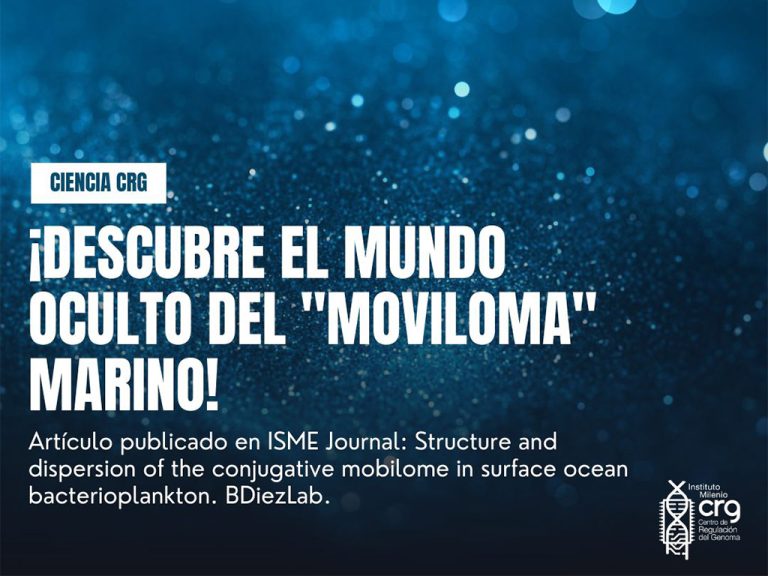Imagine an ocean full of tiny microorganisms working together to survive. Within these microorganisms exist fascinating entities called Mobile Genetic Elements (MGEs), which act like small couriers exchanging messages that can lead to adaptation in these microorganisms. This collection of MGEs is known as the “mobilome.”
A recent study by Dr. Beatriz Díez’s research team at PUC investigated how the mobilome is structured on the ocean surface. These scientists used publicly available marine metagenome data (the collection of DNA present in a community) obtained from the TARA Oceans project, along with molecular markers such as relaxases and type IV secretion system (T4SS) coupling proteins, both associated with the transfer of genetic material through cell-to-cell contact (conjugative transfer).
The results were surprising: the T4SS machinery proteins were much more abundant than relaxases in the surface marine bacterioplankton. Among the identified MGEs, mobilizable elements were the most common, outnumbering self-conjugative sequences. Additionally, many incomplete T4SSs were detected, suggesting possible strategies related to trans-acting activity between MGEs and potential accessory functions of the T4SS, in addition to protein secretion, allowing hosts of these MGEs to maintain a lower metabolic burden in such a dynamic system as the marine one.
The study also revealed a wide geographical dispersion of MGEs across the world’s oceanic regions, highlighting the Southern Ocean surrounding Antarctica as the most segregated from other regions. Among the MGEs identified in this study, integrative and conjugative elements showed wider marine geographic dispersion than plasmids. Finally, the marine mobilome showed a great similarity to the functions present in known plasmid databases. Interestingly, the encoded genes were mostly related to DNA processing and rarely associated with antibiotic resistance, as one might think.
These discoveries show us how various mobile genetic elements could play a crucial role in the adaptation and survival of marine microorganisms and open new doors to better understand ocean ecosystems.
The ocean is a place full of mysteries and wonders, even in the microscopic world!
Read more about the study here: https://academic.oup.com/ismecommun/article/4/1/ycae059/7658351
